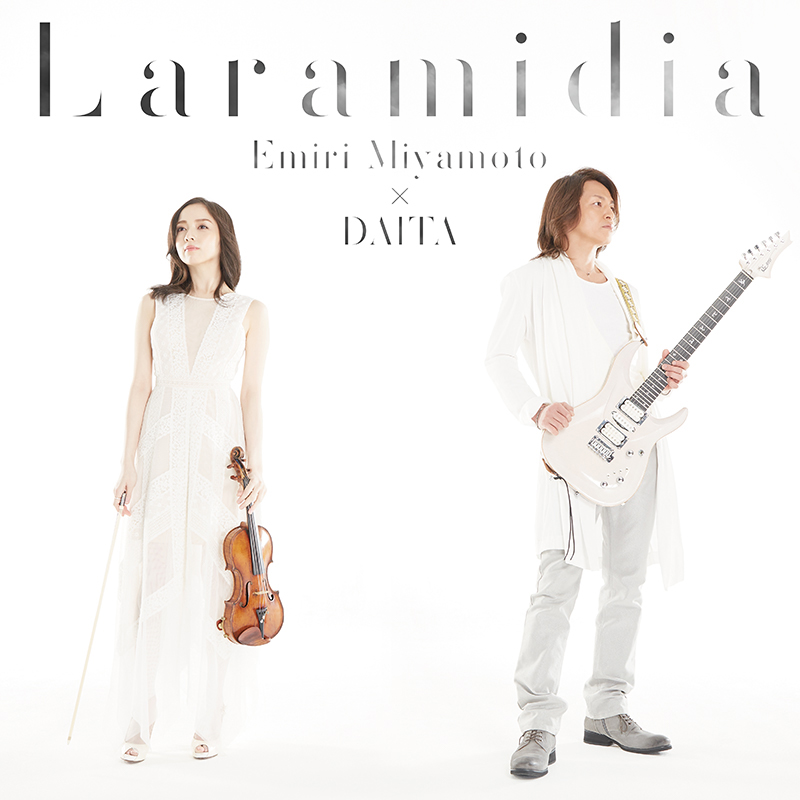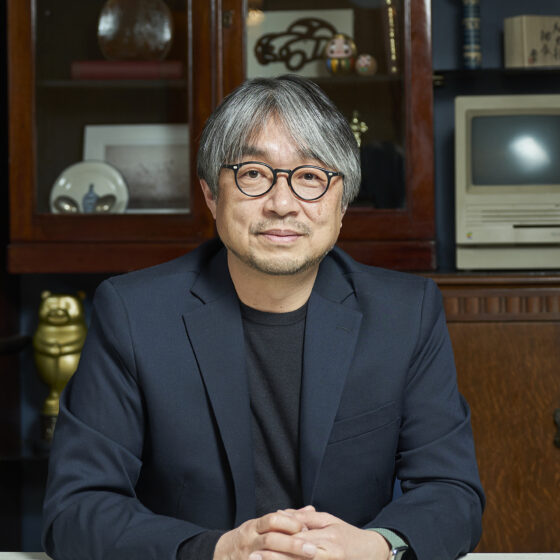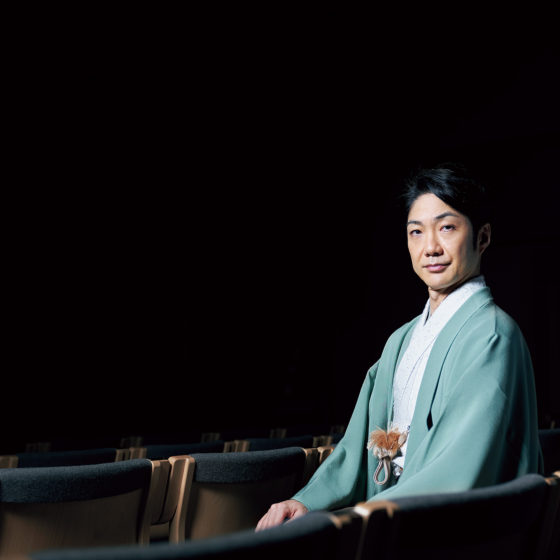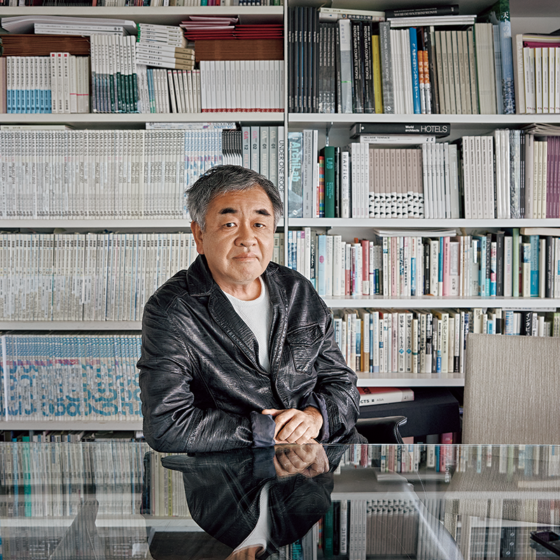- Since her 2007 debut album smile, Emiri Miyamoto has been active in a variety of television programs and commercials as a versatile violinist showcasing high-level performances over a wide range of genres. Some of the secrets behind cultivating this sensitivity and ability to produce velvety sounds are a childhood spent in urban, yet verdant, surroundings, and her rejuvenating strategy toward self-care using travel and hotel stays.
- Violinist Emiri Miyamoto continues to enchant listeners with her radiant and elegant performances transcending the categories of classical and popular music. Last year, she released the album Life, an arrangement of mostly her own compositions, but was forced to postpone the celebratory concert due to unexpected circumstances. The same concert was finally able to go forward just before this interview took place. First off, we asked her about her current mood.
- “When it was decided to have the concert, I was simultaneously relieved to have it after being postponed for a year and also had mixed feelings because of this on-going, uneasy daily situation. Live performances, however, have a way of touching the heart and you can feel it in your bones. On the day of the event, I was able to savor the joy of sending out that feeling and basking in the power of the audience’s smiles and applause.”
Sensibility arising from a city in harmony with nature
- Music not only has the ability to convey sensations that cannot be expressed in words, but also calls up past memories. World-class oboist Fumiaki Miyamoto is her father. Through his work, Emiri gained impactful memories of Germany, which she draws on during her performances.
- “He brought me to Germany just two weeks after I was born. We came back to Japan when I was about six or seven, but then went back to Germany when I reached junior high school, so it was a bit of a whirlwind. Being able to spend time in the abundant nature of Germany was a precious experience for me. Japan also has splendid parks, but Germany has parks that are inside the city, yet are actual forests. The grass and leaves were richly fragrant and there was a place like a farm near my house. I would go there and get eggs.”
- Since Germany passed nature preservation laws in the ‘70s, it was quick to adopt a long-term perspective toward protecting natural scenery and ecosystems. With that influence, Ms. Miyamoto at some point naturally became conscious of being eco-friendly and separating garbage. Perhaps because of developing that sensibility, she often feels soothed by natural sounds.
- “Right now, it’s hard to leave the prefecture, but before all of this, if I had time, I would wake up early, drive to the beach, and recharge myself by listening to the waves. When I was single, I even traveled to Ishigaki island by myself. The sound of the waves really calms me. I think that maybe it’s because it is similar to the sounds we heard in the womb.”
- Some theories hold that it is good for the fetus if you listen to music when pregnant. When Ms. Miyamoto was pregnant, she said that her baby would react more than usual when she listened to soft music like Ravel’s Pavane pour une infante défunte (Pavane for a Dead Princess).
Calming moments provided by music
- Ms. Miyamoto said that during the day she listens to music in spare moments between doing household chores like cleaning and preparing meals. Her playlists are very diverse and she even enjoys listening to rock songs with heavy beats when she is with her daughter.
- “There are times when I can concentrate better in silence. Earlier, I let my daughter watch videos on the computer to help her study English, but she would focus on that and not really look at me when I talked to her. I thought that that was not good and wanted the family to talk to one another face to face. I also had music playing at the same time. This helped my daughter get her homework done and increased the amount of conversation we had. Music can add warmth to our environment and help us relax.”
- Ms. Miyamoto also likes staying at hotels, and with the dip in her number of live performances since last year, she’s had more opportunities to stay at a number of hotels in the Tokyo area to enjoy a change of pace. Music is, of course, an essential companion for her on these outings.
- “If you’re feeling in a rut emotionally, you cannot make music. In times like that, I go somewhere new to refresh my spirits, but avoid anywhere with commotion. So, I always tend to choose a hotel. At home, I tend to put everything in the most convenient place, but hotels have put thought into interior decorating and aesthetics. The down-lighting techniques are also something I learn from.”
- “Even though the space is totally different from a home, it helps me relax. I connect to the speakers with Bluetooth and put on my favorite music while enjoying room service and relaxing in the lounge if I want a place with a little more activity. It’s also nice not to have to do any of the small chores that I usually have to do,” she said while chuckling. “If I’m relaxed, that feeling transfers to my family and it eases stress all the way around.”

photo=Hajime Kamiiisaka
A 300-year-old instrument speaks like a wise master
- Ms. Miyamoto used the time away from live performances as an opportunity to challenge herself. She used hotel visits as a rejuvenation strategy. On those visits, her violin was by her side. She is currently playing a nearly 300-year-old Domenico Montagnana on loan from the NPO Yellow Angel.
- “I have to pick it up every day without fail, so if I’m going to be away from home for a few days, it comes with me. It has been played from a time when Japan was in the Edo period, so I feel a romance. It has so much more experience than me.”
- After testing dozens if not hundreds of violins, she felt a touch of destiny the moment she encountered this one. But that is not to say that the first sounds it yielded were beautiful.
- “Initially, it sounded terrible. It seemed like it just wouldn’t respond to me and even when I really tried, I wasn’t getting the best sound out of it. Like building up a relationship with a person, it was a reciprocal interaction and I had to explore until it was time to say, ‘Okay, let’s be ourselves.’ People say that it takes time to get accustomed to an exquisite instrument and it took one to two years. But when it did open up to me, the sound it yielded had quite a bit of depth. It seems to have striking differences between its rises and falls. As soon as I have a sound that makes me feel happy, I will later find myself in a concert where it will not do anything that I want it to. It is like being scolded by my master saying, ‘You can’t get complacent.’ So I have to be careful.”
Euphoria created by fantasy+music
- At the end of June, Ms. Miyamoto released Laramidia, a new piece referencing North America’s ancient land mass and the dinosaurs that once populated it. The piece is a collaboration with eminent Japanese guitarist Daita and has become the official theme music for the DinoScience The Dinosaurs of Laramidia exhibition “DinoScience The Dinosaurs of Laramidia”, which will be on display in Yokohama this summer.
- “It is a really grand and soaring piece that makes me feel as if the dinosaurs might start moving right before our eyes. It is so exciting that it drew me in even when it was just a rough-cut demo. Music, especially instrumental music, which has no lyrics, can make expression and articulation challenging, but at the same time, it has the freedom of letting listeners picture whatever scenes they like. When I listen to music, I enjoy it by immersing myself in thoughts of a place I would like to visit or by remembering a place that I love. I hope that listeners will listen to Laramidia and imagine their favorite dinosaurs are moving. If they do, I think it will help them enjoy the music even more.”










